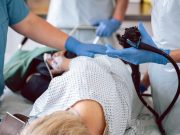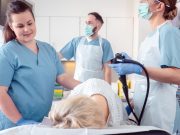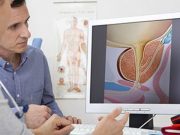Tag: Colonoscopy
Patient Navigation Program Increases Receipt of Colonoscopy
Program increases receipt of follow-up colonoscopy among persons aged 50 to 75 years with an abnormal stool test result
AGA Finds No Clear Evidence for or Against AI-Assisted Colonoscopy
CAD may lead to an 8 percent increase in adenoma detection rate and 2 percent increase in detection rate of advanced colorectal neoplasia
Score Can Predict Likelihood of Advanced Colorectal Neoplasia in People Under 45
Model included BMI, first-degree relative family history of CRC, other family history of CRC, tobacco use as factors
Updates Issued for Optimizing Bowel Preparation Quality for Colonoscopy
Use of a split-dose bowel preparation regimen is recommended; same-day regimen acceptable for those undergoing afternoon colonoscopy
Centralized CRC Screening Outreach Intervention Improves Screening Rates
Intervention participants were more likely to complete screening and to have detection of advanced colorectal neoplasia
Colorectal Cancer Risk Factors Important to Consider for Rescreening Interval
Findings seen for individuals with previous negative colonoscopy screening
Computer-Aided Detection Colonoscopies Tied to Improved Adenoma Detection Rate
Similar average advanced colorectal neoplasia per colonoscopy seen with CADe-enhanced and conventional colonoscopy
GLP-1 RA Use Linked to Retained Gastric Contents During Endoscopies
17.4 percent in GLP-1 RA group undergoing esophagogastroduodenoscopies had food retention versus none in the control group
GLP-1 RA Use Linked to Lower Quality of Bowel Preparation
More patients taking GLP-1 receptor agonists require repeat colonoscopy due to poor bowel prep
Offering Choice of CRC Screening Increases Completion Rates
Rate of CRC screening improved within six months for those offered FIT only or a choice of coloscopy or FIT














